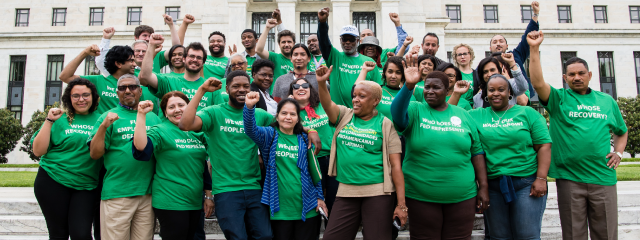Ensuring an Inclusive Democracy with Automatic Voter Registration

As the legislative sessions in Illinois and Maryland swing into high gear this spring, the Just Democracy Coalition in Illinois and a voter coalition in Maryland are working to expand access to voter registration and the ballot box by advancing Automatic Voter Registration (AVR) legislation in their respective legislatures.
Ensuring a more inclusive democracy is central to the Center for Popular Democracy’s mission. So we are working with these state coalitions, along with partner organizations in Illinois—ICIRR and Action Now—and in Maryland—CASA de Maryland and Maryland Communities United—to address registration disparities that leave more than a million eligible citizens left out of the electoral process. Last year, Oregon and California adopted two versions of AVR, and now Illinois and Maryland are working hard to join these states in their commitment to expanding democratic participation by reducing the barriers to voter registration.
The Just Democracy coalition and the Maryland Voter Coalition have been active at the state house, mobilizing support for AVR in targeted districts across each state and launching a robust digital campaign to support organizing efforts. Notably, Illinois’ AVR effort got a boost when President Obama spoke to the Illinois state legislature, calling on them and other state legislators across the country to reduce the barriers to voting by making automatic voter registration “the new norm across America.”
AVR will increase political participation in Illinois and Maryland by reducing the procedural barriers to voting and enabling base-building organizations to invest more time and energy into voter mobilization and education programs. AVR shifts the responsibility for putting eligible citizens on the voter rolls to the government by electronically transferring voter eligibility information from government agencies that eligible citizens already interact with like the DMV, public assistance agencies or state health exchanges. AVR systems provide the opportunity for eligible citizens to decline registration and should include strong privacy and data security protections and safeguards to ensure that ineligible people are not registered to vote and are protected from legal consequences of inadvertent registration.











